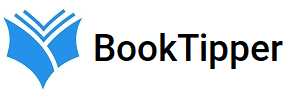Featured Non-Fiction & Biography

MAKING A SCENE
by Constance Wu
Named a Most Anticipated Book by Time and The Associated Press!
From actor Constance Wu, a powerful and poignant memoir-in-essays.
Growing up in the friendly suburbs of Richmond, Virginia, Constance Wu was often scolded for having big feelings or strong reactions. “Good girls don’t make scenes,” people warned her. And while she spent most of her childhood suppressing her bold, emotional nature, she found an early outlet in local community theater—it was the one place where big feelings were okay—were good, even. Acting became her refuge, her touchstone, and eventually her vocation. At eighteen she moved to New York, where she’d spend the next ten years of her life auditioning, waiting tables, and struggling to make rent before her two big breaks: the TV sitcom Fresh Off the Boat and the hit film Crazy Rich Asians.
Through raw and relatable essays, Constance shares private memories of childhood, young love and heartbreak, sexual assault and harassment, and how she “made it” in Hollywood. Her stories offer a behind-the-scenes look at being Asian American in the entertainment industry and the continuing evolution of her identity and influence in the public eye. Making a Scene is an intimate portrait of pressures and pleasures of existing in today’s world.

CHIP WAR
by Chris Miller
An epic account of the decades-long battle to control what has emerged as the world’s most critical resource—microchip technology—with the United States and China increasingly in conflict.
You may be surprised to learn that microchips are the new oil—the scarce resource on which the modern world depends. Today, military, economic, and geopolitical power are built on a foundation of computer chips. Virtually everything—from missiles to microwaves, smartphones to the stock market—runs on chips. Until recently, America designed and built the fastest chips and maintained its lead as the #1 superpower. Now, America’s edge is slipping, undermined by competitors in Taiwan, Korea, Europe, and, above all, China. Today, as Chip War reveals, China, which spends more money each year importing chips than it spends importing oil, is pouring billions into a chip-building initiative to catch up to the US. At stake is America’s military superiority and economic prosperity.
Economic historian Chris Miller explains how the semiconductor came to play a critical role in modern life and how the U.S. become dominant in chip design and manufacturing and applied this technology to military systems. America’s victory in the Cold War and its global military dominance stems from its ability to harness computing power more effectively than any other power. But here, too, China is catching up, with its chip-building ambitions and military modernization going hand in hand. America has let key components of the chip-building process slip out of its grasp, contributing not only to a worldwide chip shortage but also a new Cold War with a superpower adversary that is desperate to bridge the gap.
Illuminating, timely, and fascinating, Chip War shows that, to make sense of the current state of politics, economics, and technology, we must first understand the vital role played by chips.

CONFIDENCE MAN
by Maggie Haberman
“This is the book Trump fears most.” – Axios
“Confidence Man [is] Maggie Haberman’s much anticipated biography of the president she followed more assiduously than any other journalist. No doubt, there are revelations aplenty here. But this is a book more notable for the quality of its observations about Trump’s character than for its newsbreaks. It will be a primary source about the most vexing president in American history for years to come.” – Joe Klein, The New York Times
From the Pulitzer-Prize-winning New York Times reporter who has defined Donald J. Trump’s presidency like no other journalist, Confidence Man is a magnificent and disturbing reckoning that chronicles his life and its meaning from his rise in New York City to his tortured post-presidency.
Few journalists working today have covered Donald Trump more extensively than Maggie Haberman. And few understand him and his motivations better. Now, demonstrating her majestic command of this story, Haberman reveals in full the depth of her understanding of the 45th president himself, and of what the Trump phenomenon means.
Interviews with hundreds of sources and numerous interviews over the years with Trump himself portray a complicated and often contradictory historical figure. Capable of kindness but relying on casual cruelty as it suits his purposes. Pugnacious. Insecure. Lonely. Vindictive. Menacing. Smarter than his critics contend and colder and more calculating than his allies believe. A man who embedded himself in popular culture, galvanizing support for a run for high office that he began preliminary spadework for 30 years ago, to ultimately become a president who pushed American democracy to the brink.
The through-line of Trump’s life and his presidency is the enduring question of what is in it for him or what he needs to say to survive short increments of time in the pursuit of his own interests.
Confidence Man is also, inevitably, about the world thatproduced such a singular character, giving rise to his career and becoming his first stage. It is also about a series of relentlessly transactional relationships. The ones that shaped him most were with girlfriends and wives, with Roy Cohn, with George Steinbrenner, with Mike Tyson and Don King and Roger Stone, with city and state politicians like Robert Morgenthau and Rudy Giuliani, with business partners, with prosecutors, with the media, and with the employees who toiled inside what they commonly called amongst themselves the “Trump Disorganization.”
That world informed the one that Trump tried to recreate while in the White House. All of Trump’s behavior as President had echoes in what came before. In this revelatory and newsmaking book, Haberman brings together the events of his life into a single mesmerizing work. It is the definitive account of one of the most norms-shattering and consequential eras in American political history.
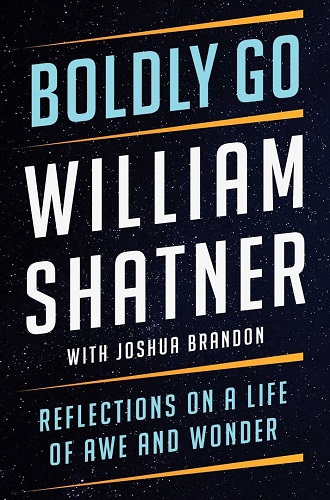
BOLDLY GO
by William Shatner with Joshua Brandon
The beloved star of Star Trek, recent space traveler, and living legend William Shatner reflects on the interconnectivity of all things, our fragile bond with nature, and the joy that comes from exploration in this inspiring, revelatory, and exhilarating collection of essays.
Long before Gene Roddenberry put him on a starship to explore the galaxy, long before he actually did venture to space, William Shatner was gripped by his own quest for knowledge and meaning. Though his eventful life has been nothing short of extraordinary, Shatner is still never so thrilled as when he experiences something that inspires him to simply say, “Wow.”
Within these affecting, entertaining, and informative essays, he demonstrates that astonishing possibilities and true wonder are all around us. By revealing stories of his life—some delightful, others tragic—Shatner reflects on what he has learned along the way to his ninth decade and how important it is to apply the joy of exploration to our own lives. Insightful, irreverent, and with his signature wit and dramatic flair, Boldly Go is an unputdownable celebration of all that our miraculous universe holds for us.
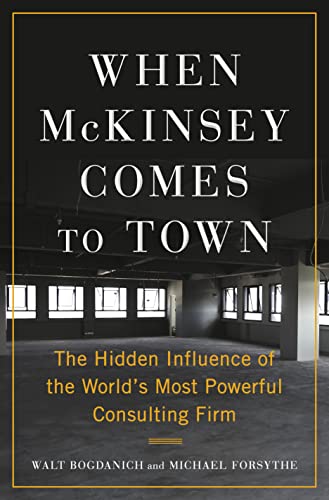
WHEN MCKINSEY COMES TO TOWN
by Walt Bogdanich & Michael Forsythe
An explosive, deeply reported exposé of McKinsey & Company, the international consulting firm that advises corporations and governments, that highlights the often drastic impact of its work on employees and citizens around the world
“Meticulously reported, and ultimately devastating, this is an important book.” —Patrick Radden Keefe, New York Times bestselling author of Empire of Pain and Say Nothing
McKinsey & Company is the most prestigious consulting company in the world, earning billions of dollars in fees from major corporations and governments who turn to it to maximize their profits and enhance efficiency. McKinsey’s vaunted statement of values asserts that its role is to make the world a better place, and its reputation for excellence and discretion attracts top talent from universities around the world. But what does it actually do?
In When McKinsey Comes to Town, two prizewinning investigative journalists have written a portrait of the company sharply at odds with its public image. Often McKinsey’s advice boils down to major cost-cutting, including layoffs and maintenance reductions, to drive up short-term profits, thereby boosting a company’s stock price and the wealth of its executives who hire it, at the expense of workers and safety measures. McKinsey collects millions of dollars advising government agencies that also regulate McKinsey’s corporate clients. And the firm frequently advises competitors in the same industries, but denies that this presents any conflict of interest.
In one telling example, McKinsey advised a Chinese engineering company allied with the communist government which constructed artificial islands, now used as staging grounds for the Chinese Navy—while at the same time taking tens of millions of dollars from the Pentagon, whose chief aim is to counter Chinese aggression.
Shielded by NDAs, McKinsey has escaped public scrutiny despite its role in advising tobacco and vaping companies, purveyors of opioids, repressive governments, and oil companies. McKinsey helped insurance companies’ boost their profits by making it incredibly difficult for accident victims to get payments; worked its U.S. government contacts to let Wall Street firms evade scrutiny; enabled corruption in developing countries such as South Africa; undermined health-care programs in states across the country. And much more.
Bogdanich and Forsythe have penetrated the veil of secrecy surrounding McKinsey by conducting hundreds of interviews, obtaining tens of thousands of revelatory documents, and following rule #1 of investigative reporting: Follow the money.
When McKinsey Comes to Town is a landmark work of investigative reporting that amounts to a devastating portrait of a firm whose work has often made the world more unequal, more corrupt, and more dangerous.

FEELS LIKE HOME
by Linda Ronstadt & Lawrence Downes
Rock and Roll Hall of Famer Linda Ronstadt takes readers on a journey to the place her soul calls home, the Sonoran Desert, in this candid new memoir.
In Feels Like Home, Grammy award-winning singer Linda Ronstadt effortlessly evokes the magical panorama of the high desert, a landscape etched by sunlight and carved by wind, offering a personal tour built around meals and memories of the place where she came of age. Growing up the granddaughter of Mexican immigrants and a descendant of Spanish settlers near northern Sonora, Ronstadt’s intimate new memoir celebrates the marvelous flavors and indomitable people on both sides of what was once a porous border whose denizens were happy to exchange recipes and gather around campfires to sing the ballads that shaped Ronstadt’s musical heritage. Following her bestselling musical memoir, Simple Dreams, this book seamlessly braids together Ronstadt’s recollections of people and their passions in a region little understood in the rest of the United States. This road trip through the desert, written in collaboration with former New York Times writer Lawrence Downes and illustrated throughout with beautiful photographs by Bill Steen, features recipes for traditional Sonoran dishes and a bevy of revelations for Ronstadt’s admirers.
If this book were a radio signal, you might first pick it up on an Arizona highway, well south of Phoenix, coming into the glow of Ronstadt’s hometown of Tucson. It would be playing something old and Mexican, from a time when the border was a place not of peril but of possibility.
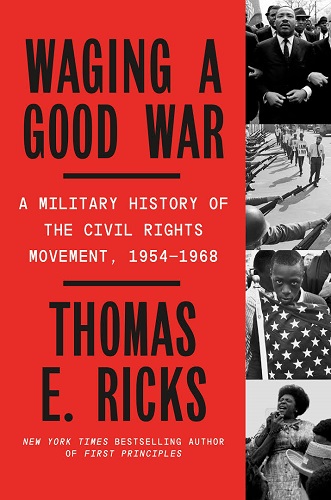
WAGING A GOOD WAR
by Thomas E. Ricks
#1 New York Times bestselling author and Pulitzer Prize winner Thomas E. Ricks offers a new take on the Civil Rights Movement, stressing its unexpected use of military strategy and its lessons for nonviolent resistance around the world.
In Waging a Good War, bestselling author Thomas E. Ricks offers a fresh perspective on America’s greatest moral revolution―the civil rights movement of the 1950s and 1960s―and its legacy today. While the Movement has become synonymous with Martin Luther King Jr.’s ethos of nonviolence, Ricks, a Pulitzer Prize–winning war reporter, draws on his deep knowledge of tactics and strategy to note the surprising affinities between that ethos and the organized pursuit of success at war. The greatest victories for Black Americans of the past century, he stresses, were won not by idealism alone, but by paying attention to recruiting, training, discipline, and organization―the hallmarks of any successful military campaign.
An engaging storyteller, Ricks deftly narrates the movement’s triumphs and defeats. He follows King and other key figures from Montgomery to Memphis, demonstrating that Gandhian nonviolence was a philosophy of active, not passive, resistance – involving the bold and sustained confrontation of the Movement’s adversaries, both on the ground and in the court of public opinion. While bringing legends such as Fannie Lou Hamer and John Lewis into new focus, Ricks also highlights lesser-known figures who played critical roles in fashioning nonviolence into an effective tool―the activists James Lawson, James Bevel, Diane Nash, and Septima Clark foremost among them. He also offers a new understanding of the Movement’s later difficulties as internal disputes and white backlash intensified. Rich with fresh interpretations of familiar events and overlooked aspects of America’s civil rights struggle, Waging a Good War is an indispensable addition to the literature of racial justice and social change―and one that offers vital lessons for our own time.

AMERICAN MIDNIGHT
by Adam Hochschild
From legendary historian Adam Hochschild, a groundbreaking reassessment of the overlooked but startlingly resonant period between World War I and the Roaring Twenties, when the foundations of American democracy were threated by war, pandemic, and violence fueled by battles over race, immigration, and the rights of labor
“A riveting, resonant account of the fragility of freedom.”—Kirkus, STARRED review
The nation was on the brink. Mobs burned Black churches to the ground. Courts threw thousands of people into prison for opinions they voiced—in one notable case, only in private. Self-appointed vigilantes executed tens of thousands of citizens’ arrests. Some seventy-five newspapers and magazines were banned from the mail and forced to close. When the government stepped in, it was often to fan the flames.
This was America during and after the Great War: a brief but appalling era blighted by lynchings, censorship, and the sadistic, sometimes fatal abuse of conscientious objectors in military prisons—a time whose toxic currents of racism, nativism, red-baiting, and contempt for the rule of law then flowed directly through the intervening decades to poison our own. It was a tumultuous period defined by a diverse and colorful cast of characters, some of whom fueled the injustice while others fought against it: from the sphinxlike Woodrow Wilson, to the fiery antiwar advocates Kate Richards O’Hare and Emma Goldman, to labor champion Eugene Debs, to a little-known but ambitious bureaucrat named J. Edgar Hoover, and to an outspoken leftwing agitator—who was in fact Hoover’s star undercover agent. It is a time that we have mostly forgotten about, until now.
In American Midnight, award-winning historian Adam Hochschild brings alive the horrifying yet inspiring four years following the U.S. entry into the First World War, spotlighting forgotten repression while celebrating an unforgettable set of Americans who strove to fix their fractured country—and showing how their struggles still guide us today.

ALL THAT IS WICKED
by Kate Winkler Dawson
Acclaimed crime historian, podcaster, and author of American Sherlock Kate Winkler Dawson tells the thrilling story of Edward Rulloff—a serial murderer who was called “too intelligent to be killed”—and the array of 19th century investigators who were convinced his brain held the key to finally understanding the criminal mind.
Edward Rulloff was a brilliant yet utterly amoral murderer—some have called him a “Victorian-era Hannibal Lecter”—whose crimes spanned decades and whose victims were chosen out of revenge, out of envy, and sometimes out of necessity. From his humble beginnings in upstate New York to the dazzling salons and social life he established in New York City, at every turn Rulloff used his intelligence and regal bearing to evade detection and avoid punishment. He could talk his way out of any crime…until one day, Rulloff’s luck ran out.
By 1871 Rulloff sat chained in his cell—a psychopath holding court while curious 19th-century “mindhunters” tried to understand what made him tick. From alienists (early psychiatrists who tried to analyze the source of his madness) to neurologists (who wanted to dissect his brain) to phrenologists (who analyzed the bumps on his head to determine his character), each one thought he held the key to understanding the essential question: is evil born or made? Eventually, Rulloff’s brain would be placed in a jar at Cornell University as the prize specimen of their anatomy collection…where it still sits today, slowly moldering in a dusty jar. But his story—and its implications for the emerging field of criminal psychology—were just beginning.
Expanded from season one of her hit podcast on the Exactly Right network (7 million downloads and growing), in All That Is Wicked Kate Winkler Dawson draws on hundreds of source materials and never-before-shared historical documents to present one of the first glimpses into the mind of a serial killer—a century before the term was coined—through the scientists whose work would come to influence criminal justice for decades to come.
Still Hot in Non-Fiction & History

WHAT IF? 2
by Randall Munroe
AN INSTANT NEW YORK TIMES BESTSELLER!
“The questions throughout What If? 2 are equal parts brilliant, gross, and wonderfully absurd and the answers are thorough, deeply researched, and great fun. . . . Science isn’t easy, but in Munroe’s capable hands, it surely can be fun.” —TIME
The #1 New York Times bestselling author of What If? and How To answers more of the weirdest questions you never thought to ask
The millions of people around the world who read and loved What If? still have questions, and those questions are getting stranger. Thank goodness xkcd creator Randall Munroe is here to help. Planning to ride a fire pole from the Moon back to Earth? The hardest part is sticking the landing. Hoping to cool the atmosphere by opening everyone’s freezer door at the same time? Maybe it’s time for a brief introduction to thermodynamics. Want to know what would happen if you rode a helicopter blade, built a billion-story building, made a lava lamp out of lava, or jumped on a geyser as it erupted? Okay, if you insist.
Before you go on a cosmic road trip, feed the residents of New York City to a T. rex, or fill every church with bananas, be sure to consult this practical guide for impractical ideas. Unfazed by absurdity, Munroe consults the latest research on everything from swing-set physics to airliner catapult–design to answer his readers’ questions, clearly and concisely, with illuminating and occasionally terrifying illustrations. As he consistently demonstrates, you can learn a lot from examining how the world might work in very specific extreme circumstances.
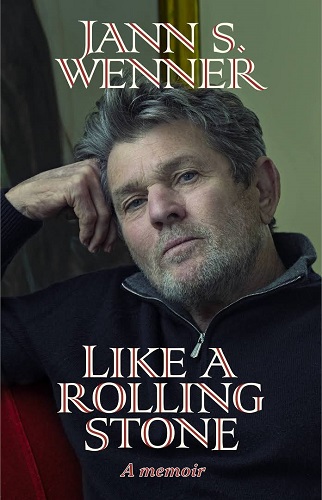
LIKE A ROLLING STONE
by Jann S. Wenner
INSTANT NEW YORK TIMES BESTSELLER
Rolling Stone founder, co-editor, and publisher Jann Wenner offers a “touchingly honest” and “wonderfully deep” memoir from the beating heart of classic rock and roll (Bruce Springsteen).
Jann Wenner has been called by his peers “the greatest editor of his generation.”
His deeply personal memoir vividly describes and brings you inside the music, the politics, and the lifestyle of a generation, an epoch of cultural change that swept America and beyond. The age of rock and roll in an era of consequence, what will be considered one of the great watersheds in modern history. Wenner writes with the clarity of a journalist and an essayist. He takes us into the life and work of Bob Dylan, John Lennon, Mick Jagger, Bono, and Bruce Springsteen, to name a few. He was instrumental in the careers of Hunter S. Thompson, Tom Wolfe, and Annie Leibovitz. His journey took him to the Oval Office with his legendary interviews with Bill Clinton and Barack Obama, leaders to whom Rolling Stone gave its historic, full-throated backing. From Jerry Garcia to the Dalai Lama, Aretha Franklin to Greta Thunberg, the people Wenner chose to be seen and heard in the pages of Rolling Stone tried to change American culture, values, and morality.
Like a Rolling Stone is a beautifully written portrait of one man’s life, and the life of his generation.

THE MOSQUITO BOWL
by Buzz Bissinger
“Buzz Bissinger’s Friday Night Lights is an American classic. With The Mosquito Bowl, he is back with a true story even more colorful and profound. This book too is destined to become a classic. I devoured it.” — John Grisham
An extraordinary, untold story of the Second World War in the vein of Unbroken and The Boys in the Boat, from the author of Friday Night Lights and Three Nights in August.
When the Japanese attacked Pearl Harbor, college football was at the height of its popularity. As the nation geared up for total war, one branch of the service dominated the aspirations of college football stars: the United States Marine Corps. Which is why, on Christmas Eve of 1944, when the 4th and 29th Marine regiments found themselves in the middle of the Pacific Ocean training for what would be the bloodiest battle of the war – the invasion of Okinawa—their ranks included one of the greatest pools of football talent ever assembled: Former All Americans, captains from Wisconsin and Brown and Notre Dame, and nearly twenty men who were either drafted or would ultimately play in the NFL.
When the trash-talking between the 4th and 29th over who had the better football team reached a fever pitch, it was decided: The two regiments would play each other in a football game as close to the real thing as you could get in the dirt and coral of Guadalcanal. The bruising and bloody game that followed became known as “The Mosquito Bowl.”
Within a matter of months, 15 of the 65 players in “The Mosquito Bowl” would be killed at Okinawa, by far the largest number of American athletes ever to die in a single battle. The Mosquito Bowl is the story of these brave and beautiful young men, those who survived and those who did not. It is the story of the families and the landscape that shaped them. It is a story of a far more innocent time in both college athletics and the life of the country, and of the loss of that innocence.
Writing with the style and rigor that won him a Pulitzer Prize and have made several of his books modern classics, Buzz Bissinger takes us from the playing fields of America’s campuses where boys played at being Marines, to the final time they were allowed to still be boys on that field of dirt and coral, to the darkest and deadliest days that followed at Okinawa.
As an Amazon Associate I earn from qualifying purchases
